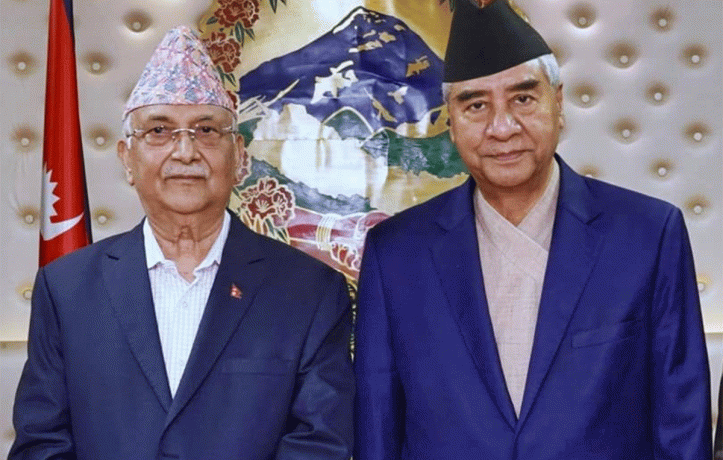Internal Differences in Nepali Congress Over BRI Deal

Kathmandu, Nepal – The ruling Nepali Congress (NC) is facing internal rifts following Nepal's decision to sign a new framework agreement with China under the Belt and Road Initiative (BRI). The deal, signed after years of deliberation, has sparked heated debates within the party, reflecting broader concerns over Nepal's foreign policy alignment and its implications for national sovereignty and development priorities.
The Agreement and Its Implications
The BRI framework agreement aims to expedite infrastructure projects, potentially including road upgrades, energy corridors, and transport linkages, as well as outlining mechanisms for financing. While the government asserts that the deal is a strategic move to boost Nepal’s infrastructure and economic potential, critics within the Nepali Congress question the feasibility and transparency of these projects.
The controversy stems from Nepal’s prior hesitation in advancing BRI projects, citing concerns over debt sustainability and operational inefficiencies. Proponents of the agreement, including Prime Minister K.P. Sharma Oli, argue that Nepal needs robust partnerships to realize its development ambitions. The NC’s endorsement of the deal, however, has revealed fractures within the party.
Internal Party Dissent
Senior leaders within the Nepali Congress have expressed divergent views on the BRI deal. Some leaders, aligned with the party’s traditional pro-India stance, fear that the agreement signals a shift in Nepal’s foreign policy orientation, potentially undermining its historically close ties with India. They argue that the deal lacks clarity on whether projects will be funded through loans or grants, raising concerns about potential debt traps.
On the other hand, reformist voices within the party defend the agreement as a pragmatic approach to diversify Nepal’s international partnerships. They emphasize the need to leverage opportunities from both China and India to drive Nepal’s economic growth and address infrastructure gaps.
Key Voices
Former Deputy Prime Minister and influential NC leader Bimalendra Nidhi has reportedly criticized the lack of detailed discussion within the party before endorsing the agreement. “Such a major international commitment demands broader consultation and consensus within the party,” he stated in a closed-door meeting.
Meanwhile, NC General Secretary Gagan Thapa has called for transparency and accountability in implementing BRI projects. “While the agreement offers opportunities, the government must ensure that projects align with national interests and do not compromise our sovereignty or fiscal health,” he said during a press interaction.
Broader Political Implications
The internal dissent in the Nepali Congress reflects larger questions about Nepal’s foreign policy direction under the current administration. While the government seeks to present the agreement as a diplomatic success, the backlash highlights the complexities of balancing Nepal's relations with its two powerful neighbors—India and China.
Analysts note that this internal discord could weaken the ruling party's ability to project unity and decisiveness on key national issues. “The lack of consensus within the Nepali Congress could embolden opposition forces and complicate the implementation of BRI projects,” said political analyst Dr. Shyam K.C.
The Way Forward
As the debate continues, party insiders suggest that the Nepali Congress leadership is planning to convene an emergency meeting to address these differences. The aim is to reconcile conflicting viewpoints and present a unified stance on the BRI deal.
For Nepal, the stakes are high. The agreement represents an opportunity to accelerate development but also poses challenges in maintaining a balanced foreign policy. How the Nepali Congress resolves its internal disputes will not only shape the party’s future but also influence Nepal’s diplomatic trajectory in the region.
Conclusion
The ongoing debate within the Nepali Congress over the BRI deal highlights the complexities of navigating Nepal’s foreign policy in a rapidly changing geopolitical landscape. With internal differences laid bare, the party must find common ground to ensure that national interests remain at the forefront of its decision-making process.




![From Kathmandu to the World: How Excel Students Are Winning Big [Admission Open]](https://nepalaaja.com/index.php/img/70194/medium/excel-college-info-eng-nep-2342.jpg)
